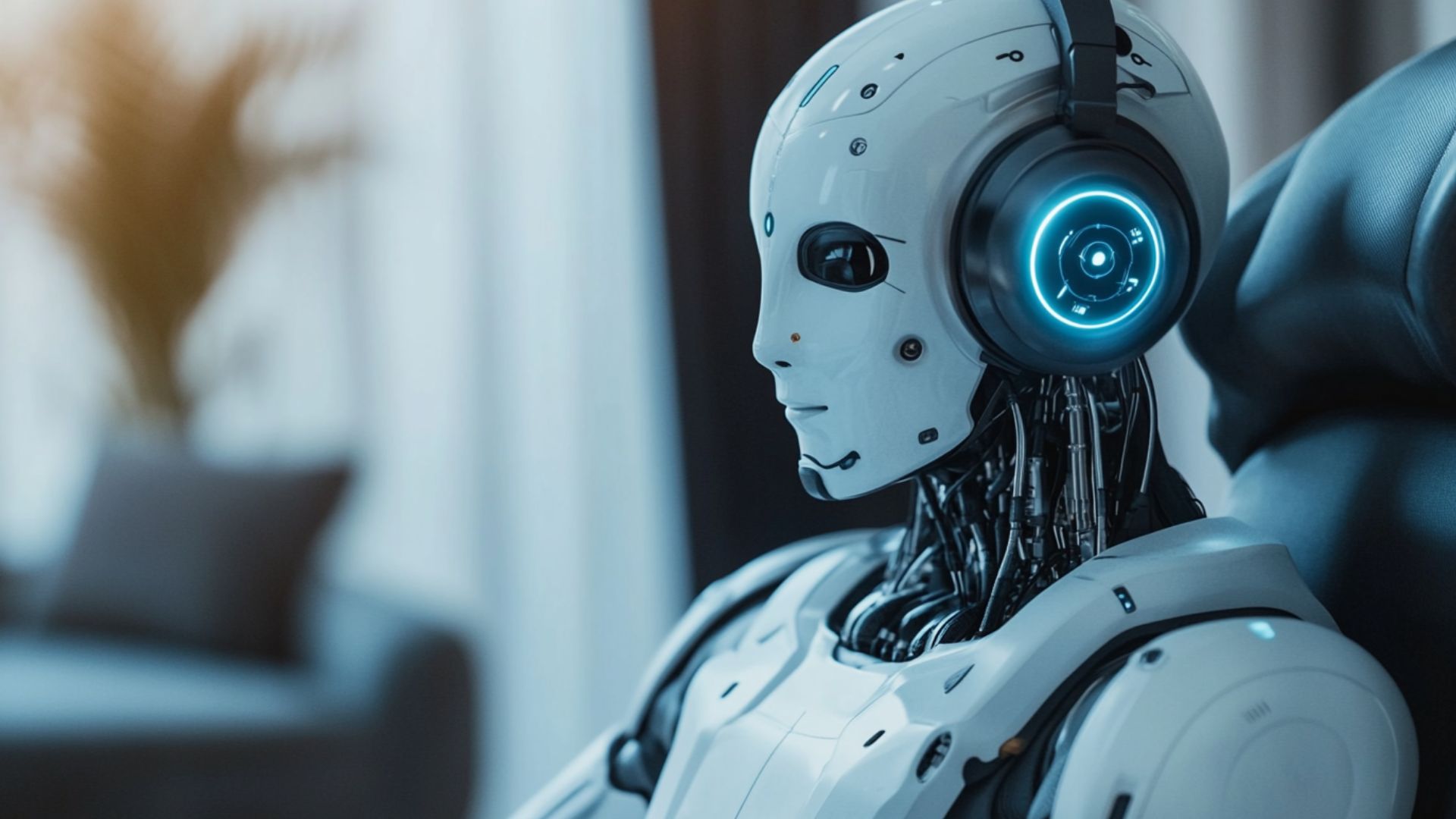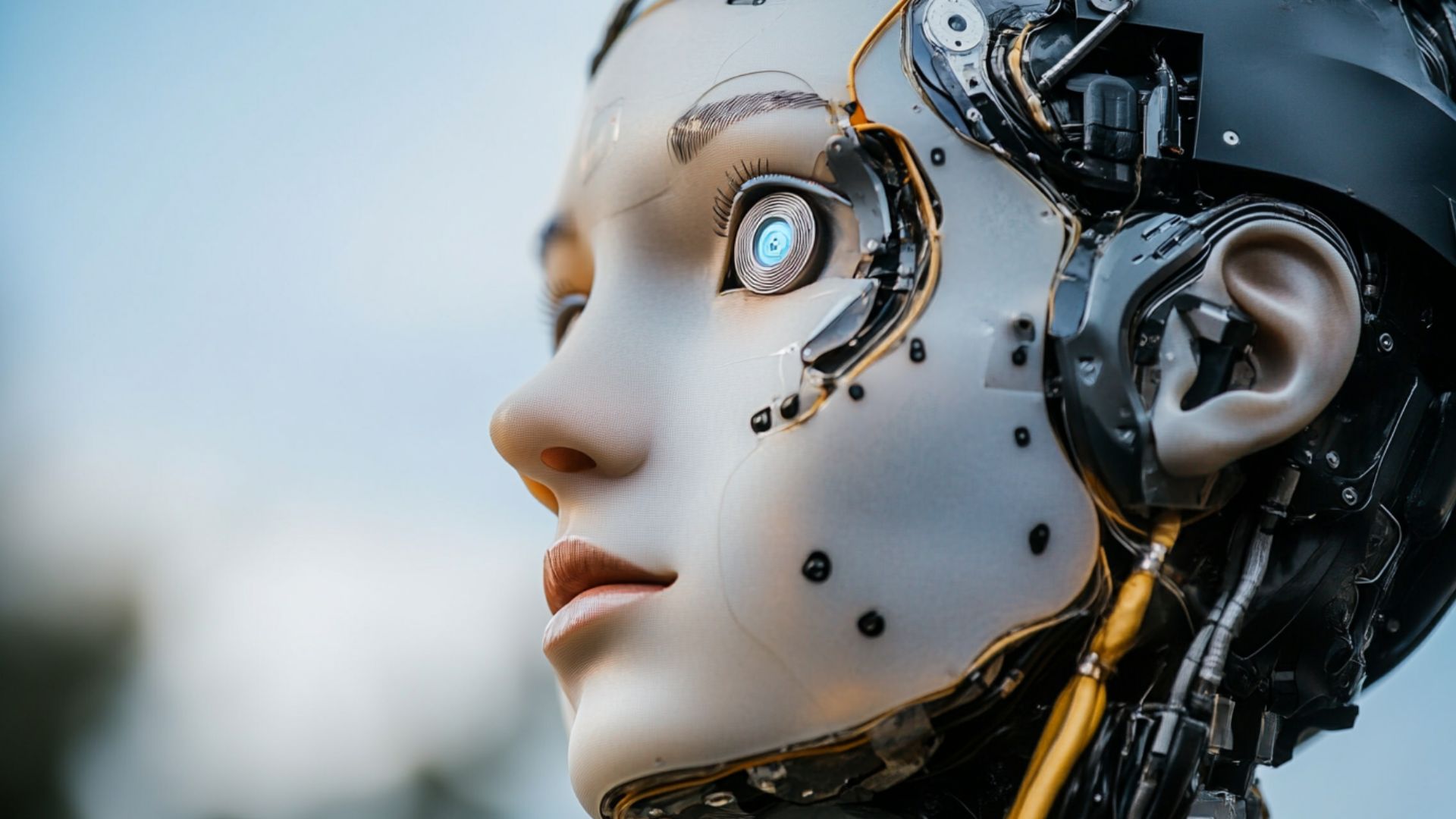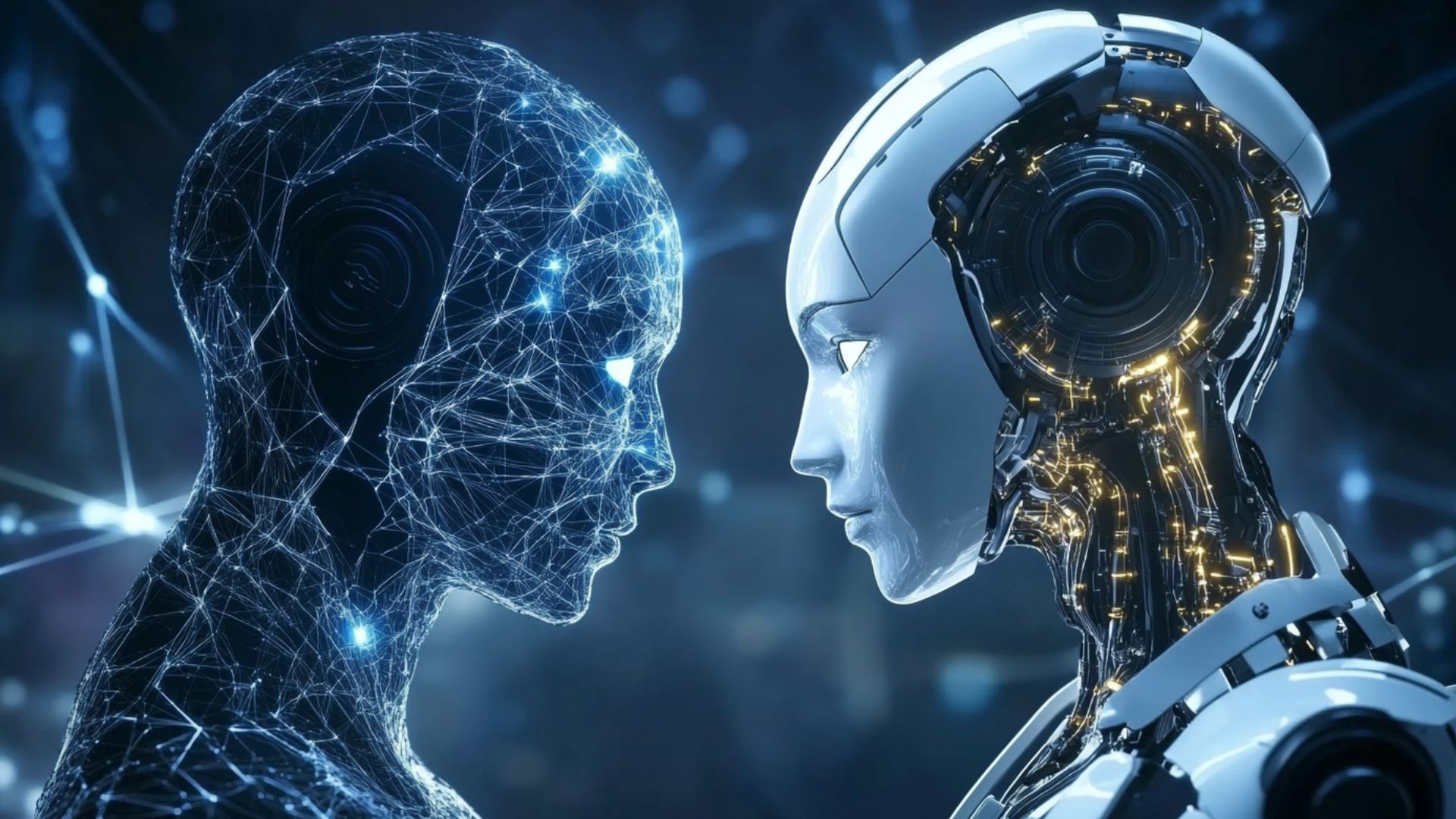Intelligent Automation vs RPA: What is Better?
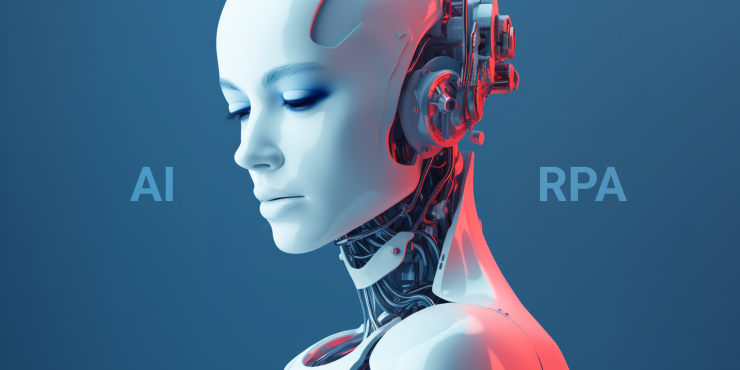
Managers worldwide see companies' future in the automation of routine processes. This is no coincidence because everyday business is developing faster and faster. And customer expectations are higher than ever.
In modern realities, many goods and services are becoming goods of everyday demand. After all, they were previously unavailable to the masses, which entails increased competition. In this regard, analyzing the customer experience is key to outperforming the competition.
The use of technology is no longer just a fashion but a necessity. After all, they allow companies to respond to the needs and wishes of customers in real time. And in this situation, automation is the only way to stay one step ahead of your competitors.
Unsurprisingly, earlier adoption of Robotics Process Automatization spread lightning-fast across all large enterprises. Intelligent Process Automation is the next logical step for companies. As they have embarked on their digital transformation journey.
In this article, we'll look at the difference between robotic process automation and intelligent automation.
What is Robotic Process Automation (RPA)?
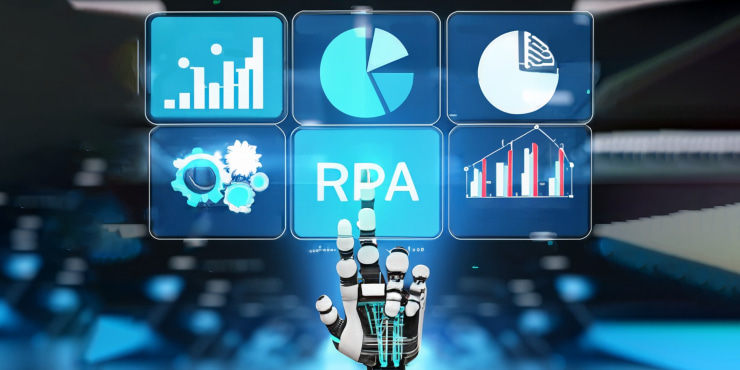
RPA is a business process automation technology that uses:
- virtual software bots;
- digital robots;
- bots.
They perform time-consuming manual tasks. Like any other software program, RPA runs on PCs, desktops, or servers. The technology creates software robots, runs them, and controls them. So, they interact with back-end applications, websites, user portals, and other applications. They imitate human actions in performing similar tasks.
With RPA, the user records the sequence of actions in the applications. They make up the flow of operations. By observing the human, the system compiles a list of actions. It creates a software bot that performs the task in the GUI of the application.
These are the following capabilities of RPA:
- understand what is on the screen;
- simulate keystrokes;
- navigate through various systems;
- find and retrieve data;
- perform other specified actions.
RPA bots do all this more accurately and faster than humans. That said, RPA has many pros, including:
- Employee satisfaction.
- Increased productivity.
- Reduced errors.
- Speed of work.
The cons of RPA include:
- Implementation (as with any tool, though).
- Risk (depends on what tasks you are trying to automate).
- Maintenance. (If your business is likely to change a lot in the future, consider whether RPA is your best solution).
- Sustainability (RPA is a great way to start automating, but it may not always be enough).
There are different types of RPA tools to choose from:
- Programmable RPA robots. You need to program first-generation RPA tools with input data.
- Self-learning bots. Alternatively, you can choose an RPA solution. Do it to learn from on-screen actions and log data to replicate human actions.
What is Intelligent Automation (IA)?

Intelligent Automation vs. RPA has many benefits for different business areas:
- for a physician, it helps control patient care all at once in one system;
- for a manager, it simplifies the daily categorization of help desk requests;
- for some, it's simply a tool enabling process improvement;
- for others, it's a powerful combination of technology, people, machines, and objects.
Intelligent process automation is an effective way to streamline operations. It can also improve customer service.
With IPA, enterprises with multiple branches can:
- collect relevant unstructured data from registration documents;
- transfer them to the main company management system.
This may include banks and financial institutions. It allows for faster customer acquisition and a shorter time to revenue. The main advantage of IA is that it performs routine activities. You can perform business process automation with AI. People also can:
- focus on more important tasks;
- open new horizons for their business;
- achieve new business goals.
Difference Between RPA and IA
Robotic Process Automation (RPA) and Intelligent Automation (IA) are two transformational technologies. They are changing the way businesses operate in the digital age. They both aim to increase efficiency and productivity. However, their capabilities and scope of application differ significantly.
RPA is a rule-based automation technology. It automates repetitive, manual tasks within structured workflows. It employs software robots or "bots" to simulate human actions like:
- data entry;
- form filling;
- document processing.
RPA excels at streamlining day-to-day rule-driven processes. It is known for its rapid implementation and cost-effectiveness.
On the opposite, IA is a broader concept that combines RPA with:
- artificial intelligence (AI);
- machine learning (ML) capabilities.
IA systems automate tasks and also have the ability to learn, adapt, and make decisions. Below, you can discover more information about the difference between robotic process automation and intelligent automation.
Definition
RPA tools are designed to cut the burden of routine tasks for workers.
Intelligent Process Automation (IPA) encompasses a larger scope of work than RPA. It complements traditional rule-based automation with decision-making capabilities. So you can achieve results with the greatest efficiency. IPA combines RPA and artificial intelligence technologies. So it can handle more complex processes rather than just automating routine tasks.
Scalability
RPA is an emerging technology that combines:
- keystroke automation with business rules;
- artificial intelligence.
It automates manual, repetitive tasks that do not need significant decision-making. A business process may need an increase or decrease in virtual labor. So, software robots can be deployed quickly at zero or minimal cost. It happens without compromising the quality of work. Also, you can expand your use case by deploying RPA solutions to other parts of your business.
Intelligent process automation makes it easy to scale resources to meet complex requirements by activating extra bots.
Simplicity
Most platforms provide blockchain-based schemes. Most platforms provide blockchain-based schemes. They make it easy to automate business processes. By doing so, they leave IT relatively free to address other priorities. Intelligent RPA makes these processes faster, more reliable, and more efficient. RPA is generally simpler and more straightforward compared to IPA. RPA bots are excellent at mimicking human actions by automating repetitive, rule-based tasks. It happens through screen scraping and interaction with existing user interfaces. IPA is more complex and advanced compared to RPA. IPA can handle unstructured data and more intricate tasks. So, it is one of the main differences between robotic process automation and intelligent automation.
Technologies
RPA consists of three main technologies:
- screen scraping;
- workflow automation;
- artificial intelligence.
Companies are now using RPA and AI technologies to automate internal business processes. They, until now, have been largely manual and thus slower, less accurate, and less efficient. RPA and AI are major components in the business automation ecosystem, which includes:
- scripting tools;
- process automation tools;
- artificial intelligence tools.
But IPA brings some innovative, new technologies. It can be natural language processing, machine learning, or data mining. It can also include artificial intelligence in RPA.
Intelligent Automation vs RPA: Challenges and Limitations

Intelligent Automation (IA) and Robotic Process Automation (RPA) have become transformative technologies. This enables optimized operations in various industries. Both come with their own set of challenges that organizations must navigate. Below, we'll explore these challenges and limitations for a more comprehensive understanding.
- Complexity of Implementation:
- IA: Implementing IA can be complex due to integrating various technologies. It includes AI and machine learning. Organizations often need specialized expertise.
- RPA: RPA implementation is generally less complex as it focuses on rule-based automation. However, complexities can arise when automating highly intricate processes.
- Cost and Scalability:
- IA: Developing and scaling IA solutions can be expensive. Especially when you incorporate AI and ML capabilities. Smaller organizations may need help to justify the cost.
- RPA: RPA is typically more cost-effective to install and offers quicker ROI. However, it may not handle large-scale, complex processes as effectively as IA. Sometimes, the capabilities of RPA can be not so wide.
- Handling Unstructured Data:
- IA: IA systems excel at processing unstructured data. However, achieving accuracy can be challenging, requiring extensive training data.
- RPA: RPA struggles with unstructured data and may need extra tools. It can also be human intervention for accurate processing.
- Change Management:
- IA: Introducing AI-powered systems often necessitates significant workflow and employee role changes. It can face resistance.
- RPA: RPA implementations might encounter less resistance. Since they tend to automate existing processes with minimal disruption.
- Decision-Making:
- IA: IA can make decisions based on learned patterns. It may need more understanding of context and human judgment.
- RPA: RPA vs. intelligent automation relies on predefined rules. It also does not have decision-making capabilities beyond simple "if-then" logic.
- Data Privacy and Security:
- IA and RPA. Both technologies must address data privacy and security concerns. Particularly when you handle sensitive information.
- Dependency on Legacy Systems:
- IA and RPA. Organizations may need help integrating these technologies with legacy systems. As they may not have up-to-date APIs or compatibility.
- Skill Gap:
- IA and RPA. There's a growing demand for professionals with expertise in these technologies. And organizations may need help finding and retaining talent.
Which Should You Choose
The choice between them should be a strategic decision based on business requirements. You need to consider:
- the complexity of your processes;
- your budget;
- difference between robotic process automation and intelligent automation;
- your long-term automation goals.
Your processes can be simple, repetitive, and rule-based. So, RPA may be a cost-effective choice. It offers quick implementation and efficiency gains, making it suitable for data entry and form-filling tasks.
On the other hand, if your processes involve unstructured data, require cognitive decision-making, or are complex in nature, IA, which incorporates artificial intelligence and machine learning, maybe the better option. So you can reach business process automation with AI better. IA systems can learn from data, adapt to changing circumstances, and make informed decisions, making them valuable for tasks like data analysis, natural language processing, and complex decision support.
FAQ
- Is intelligent automation better than RPA?
It depends on your specific needs. Intelligent Automation (IA) incorporates AI and can handle complex, cognitive tasks, while RPA is suitable for rule-based, repetitive processes.
- How do RPA and AI work together?
RPA and AI can complement each other. RPA can automate routine tasks, and AI can enhance decision-making.
- Can AI replace RPA?
AI can handle tasks traditionally done by RPA, but it may only sometimes be cost-effective for all automation needs. RPA remains valuable for simpler, rule-based tasks.
- Is RPA AI or machine learning?
RPA is not AI or machine learning on its own. RPA relies on predefined rules and instructions to automate tasks, while AI and machine learning involve the ability to learn from data.
